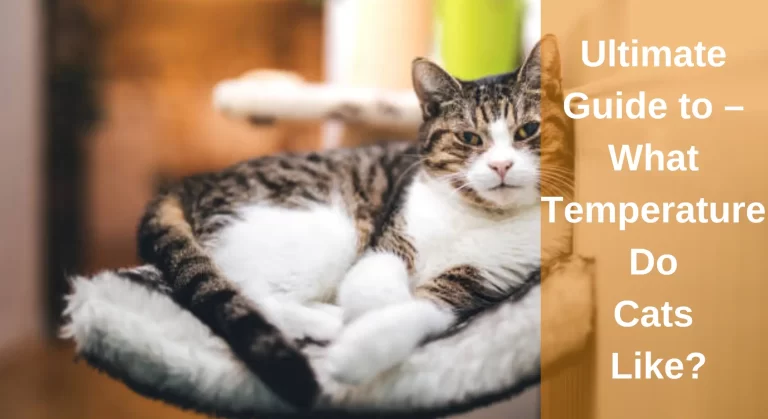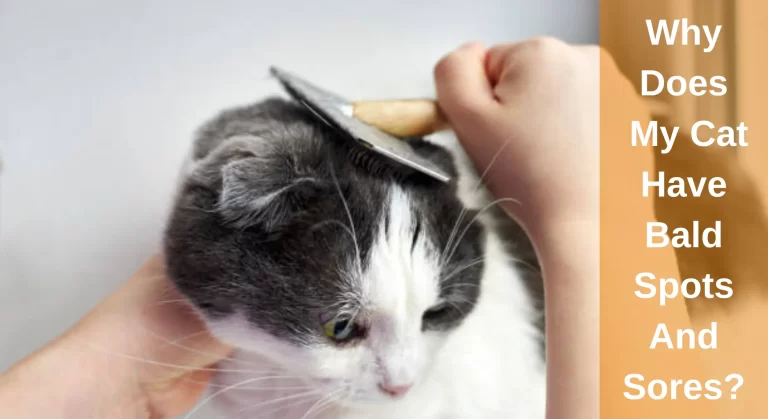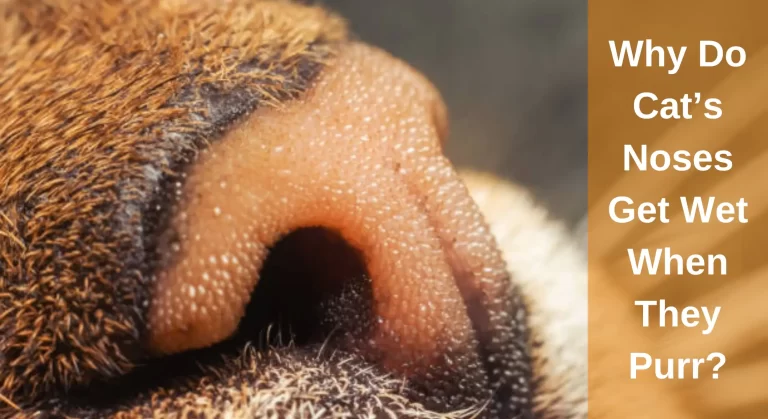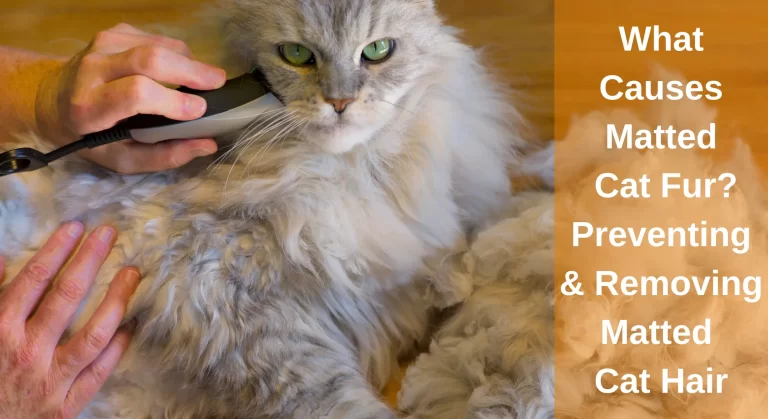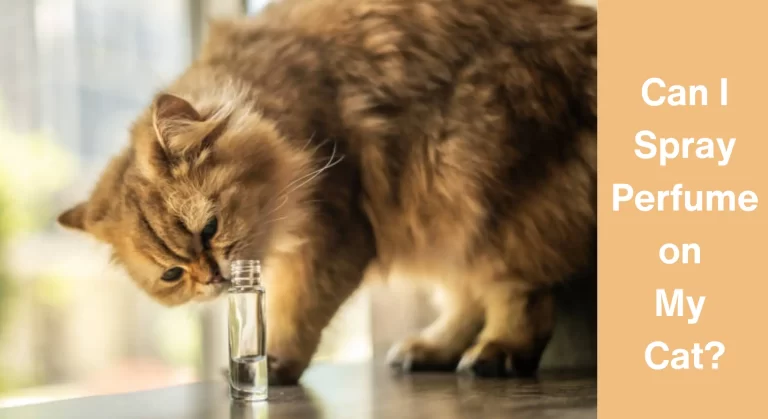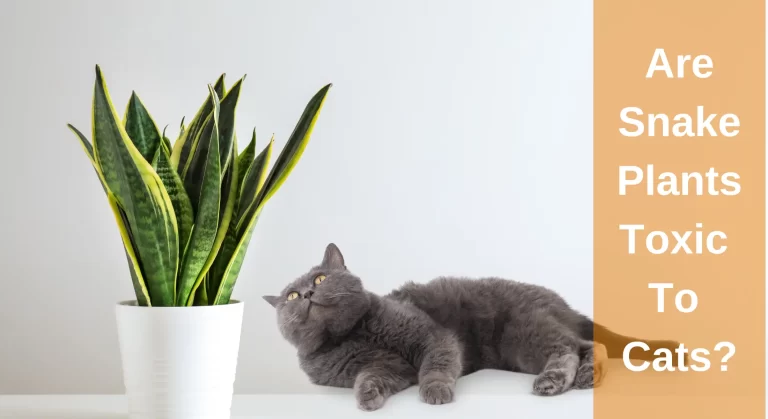Is It Normal For Cats Breath To Smell Like Fish? [Explained]
Cats are renowned for being hygienic, odourless pets. All day long, they keep themselves immaculate and practise excellent hygiene. Consequently, it is very obvious when cats start to smell, especially if you are dealing with fishy cat breath.
So Is It Normal For Cats Breath To Smell Like Fish? It is normal for a cat’s breath to smell like fish after eating fish. However, if the smell persists, it could be a sign of a more serious underlying condition. Various factors, including poor oral hygiene, dental issues, gastrointestinal issues, medical conditions, and poor diet, can cause bad breath in cats.
Oral health issues are typically indicated by poor breath. An accumulation of bacteria in the mouth is what causes the bad breath smell. The list is endless! Cats with bad breath could be malnourished, have foreign things in their mouths, or even have oral cancer.
In this article, we will explore the causes of bad breath in cats and provide you with some tips on how to treat and prevent it.

What Does It Mean When My Cat Has Bad Breath Smells Like Fish?
Having a cat’s breath smell like fish may indicate a specific health issue. However, it’s important to note that sometimes a cat’s breath can smell slightly fishy due to its diet, especially if they eat fish-flavored food.
So, if your cat’s breath only smells slightly fishy and they eat a fish-based diet, there may not be any cause for concern.
On the other hand, if your cat’s breath has a strong fishy odor and doesn’t eat a fish-based diet, an underlying health issue may be causing the smell.
Why Does My Cat’s Breath Smell Like Fish?
Even if your cat hasn’t just feasted on fish, bad breath is a clue that something is wrong. Read the list and mark the items you think are applicable to assist your cat.
Halitosis is a medical term used to describe bad breath. Stinky breath in cats is often the result of halitosis. A number of factors can contribute to halitosis, such as poor dental hygiene, periodontal disease, and certain medical conditions.

1. Dental Health (Periodontal disease)
Periodontal disease, often known as gum disease, is an oral ailment brought on by an abundance of germs in the mouth. These microbes produce plaque covering the teeth and eventually eroding the gums and dental support structures.
In this progressive disease, plaque accumulates over time. More plaque on the teeth causes more damage to the supporting structures.
Gingivitis, the first stage of gum disease, causes the gums to swell and cause pain. This progresses into periodontitis, if untreated, which is characterized by receding gums and tooth loss.
2. Poor Oral Hygiene
It is common for cats to have fishy breath because of poor oral hygiene. If your cat’s teeth are not properly cared for, bacteria can build up in its mouth, causing an unpleasant odor.
Bad breath can also be caused by plaque buildup and tartar, which may cause gingivitis and periodontal disease.
3. Diet
A cat’s diet can also affect its breath. If your cat eats a lot of fish-based foods, their breath may smell like fish.
Cats with poor diets may also have bad breath. A diet that is high in carbohydrates and low in protein can lead to bad breath because it can cause an overgrowth of bacteria in the mouth. Additionally, a lack of essential nutrients can lead to gum disease and other dental problems that can cause bad breath.
4. Chronic Kidney Disease
Kidney and liver disease can both cause bad breath in cats. The body is unable to eliminate waste and toxins when the kidneys are compromised. The result is that this water and these chemicals block the bloodstream. Your cat’s breath gets worse as the pollutants accumulate. It nearly always gives off a fishy, ammonia-like odour.
In particular, a condition called hepatic encephalopathy, which is caused by liver disease, can lead to a distinct fishy odor in the breath
You should take your cat to the vet as soon as possible since renal disease can be fatal. Since kidney disease has no known cure, early diagnosis can help slow the condition’s progression and extend your cat’s life.
5. Diabetes Mellitus
The hormone insulin, which regulates blood glucose levels, is the underlying cause of this illness. In diabetic cats, high blood sugar levels hinder the body’s cells from absorbing the glucose they need for energy.
As a result, the body starts to burn fat to compensate for the shortage of glucose. But when lipids are burnt, chemicals known as ketones are generated, and these can accumulate in the body and result in diabetic ketoacidosis (DKA).
One of the main effects of diabetes is cats’ bad breath, which is brought on by these high ketone levels. You should closely monitor your cat for other signs of diabetes, including the following:
6. Stomatitis and Gingivitis
Oral diseases include gingivitis and stomatitis. Stomatitis is an infection of the mouth’s mucous linings, whereas gingivitis is an inflammation of the gums.
Periodontal diseases usually result in gingivitis and stomatitis in cats. However, rarely they can also get these illnesses through allergies, viruses, or bacteria.
Your feline friend may need further testing, which can only be performed by a veterinarian, to check for common diseases, including calicivirus and FIV.
7. Neurological Disorders
Your cat may have fishy breath due to a neurological condition. The neurological system controls all of the mouth muscles in your cat. Cats can move their tongues, breathe via their mouths, and swallow food thanks to the nerves that link these muscles to certain brain regions.
Thus, cats with particular neurological diseases may lose their ability to control these muscles. As a result, hypersalivation could happen.
Additionally, because your cat is unable to move its tongue or swallow properly, food or other debris is more likely to gather inside the mouth. A breath that smells like fish could result from this.
8. Foreign Body in the Mouth
Cats occasionally chew on objects they shouldn’t, including dead animals, rubber bands, bones, yarn, hair ties, thread, and ribbons. These things commonly get stuck in cats’ mouths.
Oral foreign bodies are what they are, and if they aren’t quickly removed, they can result in the bad breath that smells like fish.
Don’t try to take it out if you see something odd in your cat’s mouth. If the object becomes lodged in your digestive system, you might wind up causing further damage.
If you don’t remove foreign oral bodies straight away, your cat may eat them and develop significant obstructions in its oesophagus, stomach, or small and large intestines.
9. More Salivation
Excessive salivation, also known as ptyalism or hyper-salivation, may cause your cat’s foul breath. It can also be brought on by severe halitosis, although most often, it occurs as a result of dental, neurological, or metabolic issues.
Excessive drooling can dry up or matte your cat’s mouth, which can give off an unpleasant odour. Skinfold pyodermas and other illnesses that affect the area around the lips are common in cats with allergies.
10. Loss of Teeth
Tooth resorption, traditionally known as resorptive lesions, is another dental problem. The tooth’s surface starts to degrade and decay from the root up.
The tooth’s crown will eventually be affected as the decay advances, resulting in pain and maybe infection.
After that, the tooth may shatter and fall out. So, routine dental checkups are essential to detecting issues early and preventing pain and suffering.
11. Metabolic Disease
Chronic fish breath is frequently brought on by causes other than poor oral hygiene. In other less common circumstances, it may serve as a warning sign for far more serious illnesses your cat may have, such as metabolic abnormalities.
Renal dysfunction and other metabolic disorders are common in older cats. The toxic accumulation in your cat’s blood due to renal disease causes bad breath.
Your cat’s kidneys might become overworked and unable to function. Similar to humans, cats can have bad breath caused by liver problems that have a sulphurous odour.
12. Gastrointestinal Issues
A cat’s gastrointestinal tract is a delicate system, and any imbalances or issues can result in bad breath. Some cats may have a food allergy or intolerance that is causing the fishy odor.
Other gastrointestinal issues that can cause bad breath include constipation, diarrhea, and inflammatory bowel disease.
13. Respiratory Problems
Cats with respiratory issues, such as sinus infections or upper respiratory infections, may also have bad breath.
This is because the bacteria and viruses that cause these infections can produce an unpleasant odor in the mouth and nasal passages.
How to Diagnose Your Cat’s Bad Breath
You should bring your cat to a veterinarian for a diagnosis if they have bad breath. A veterinarian can determine the underlying cause of bad breath in cats through a thorough examination and tests.
To diagnose the cause of your cat’s bad breath, your veterinarian will perform a thorough physical exam and may recommend diagnostic tests, such as bloodwork, urinalysis, and dental X-rays.

They may also perform a breath test, which involves analyzing the gases in your cat’s breath to determine the underlying cause of the odor.
Treatment Options for Fishy Breath in Cats
Halitosis is a sign of a number of illnesses, as you are now aware. Your veterinarian will perform tests to diagnose your cat’s ailment and administer therapy.
The treatment for bad breath in cats depends on the underlying cause. You should take your cat to the vet if it has bad breath. The vet will be able to diagnose the issue and provide appropriate treatment. Some common treatments for bad breath in cats include:
- Dental Cleaning: If poor oral hygiene is the cause of your cat’s bad breath, your vet may recommend a dental cleaning. This will involve removing any plaque or tartar buildup on your cat’s teeth.
- Change in Diet: If your cat’s breath is being caused by their diet, your vet may recommend switching to a different type of food. This may involve avoiding fish-based foods or switching to a dental diet that can help to reduce plaque buildup.
- Antibiotics: If your cat has an infection, such as gingivitis, antibiotics may be prescribed.
- Medications: If your cat has kidney disease or diabetes, it may need medication to manage its condition.
Home Remedies for Bad Breath in Cats
- A good way to neutralize bad breath in your cat is to add chopped fresh parsley to its food.
- Add a few drops of apple cider vinegar to your cat’s water bowl to kill bacteria.
- Offering fresh mint leaves as a treat, which can help freshen breath.
- Using a water additive specifically designed for pets can help control plaque and tartar buildup.
- Adding a small amount of coconut oil to your cat’s food can help reduce inflammation in the mouth.
Preventing Bad Breath in Cats
If your cat’s bad breath is mild and not caused by an underlying medical condition, there are several things you can do at home to improve their oral hygiene and freshen their breath. These include:

1. Maintaining Good Oral Health
Good oral hygiene is essential for preventing bad breath in cats. Brushing your cat’s teeth regularly can also help prevent dental disease and improve their breath.
It is important to use toothpaste specially designed for cats, as human toothpaste can harm them.
2. Dietary Changes – High-Quality Diet
You may enhance your cat’s breath scent by switching to a high-quality diet. If you suspect your cat has food sensitivity, talk to your veterinarian about prescription foods. If not, look for high-quality proteins that include a few granules.
Avoid giving your cat too many fish-based treats or food, as this can contribute to a fishy smell in its mouth.
3. Cat Tooth Gels and water Additives
You can combat feline bad breath using cat dental gels and water additives. If you sometimes brush your cat’s teeth with plaque and tartar remover or add them to water, the amount of plaque and tartar accumulating as a film over the teeth will decrease.
Water is an essential component of your cat’s health and plays a significant role in keeping your cat’s mouth clean. Fresh water should be readily accessible to your cat, and its water bowl should be kept clean.
4. Sweet Toys
Give your cat chew toys so that they may clean the tartar and plaque from their teeth. Cats are compelled to bite and chew on chew toys, which helps to keep their teeth clean.
Chew toys with bad breath chemicals are considerably superior to standard ones when it comes to fighting off an offensive odour. If you can’t find one, give your cat a typical chew toy so it may gnaw on it whenever it wants.
Frequently Asked Questions
Can dental issues cause a cat’s bad breath?
Yes, dental issues such as periodontal disease or tooth decay can cause bad breath in cats.
Is it normal for a cat’s breath to smell bad after eating fish?
It is normal for a cat’s breath to smell like fish after eating fish. A persistent smell, on the other hand, could indicate a more serious underlying problem.
Can certain foods cause a fishy smell in a cat’s breath?
Yes, certain types of fish-based cat foods or treats can sometimes cause a fishy smell on a cat’s breath. If you notice a strong odor after feeding your cat a certain food, it may be worth trying a different brand or formula to see if the smell improves.
Can I use human toothpaste to brush my cat’s teeth?
No, human toothpaste should not be used to brush a cat’s teeth as it can be harmful to their health. Make sure you use cat-specific toothpaste.
Can I give my cat breath mints or gum to freshen their breath?
No, cats should not be given gum or cat breath mints. These can be harmful to cats.
How often should I brush my cat’s teeth?
If you want to keep your cat’s teeth healthy, you should brush them at least once a day ideally. However, even brushing a few times a week can help improve their oral hygiene and freshen their breath.
How often should I clean my cat’s teeth to prevent fishy breath?
Your cat’s health status and individual dental needs will determine how often it needs dental cleanings. Generally, An annual tooth cleaning by a veterinarian is recommended for most cats, but some may need more frequent cleanings. Your veterinarian can provide personalized recommendations based on your cat’s specific situation.
Wrap Up!
Bring your cat to the veterinarian for a dental checkup. Your doctor will also look for any infections or metabolic problems that could be causing your cat’s foul breath. You should practice good dental hygiene at home as your best line of action. Regularly brush your cat’s teeth, buy dental chews, and think about switching their food.
All these oral hygiene practices should be continued even after your cat’s bad breath disappears. By lessening the likelihood that dental problems may develop in the future, they assist in maintaining your cat’s teeth white and its gums healthy for a longer length of time.
Related Posts:
Who is Isabella?
My name is Isabella, and I am a dedicated and knowledgeable cat enthusiast. With years of experience caring for cats and a deep love for felines, I made a mission to help other cat lovers navigate the challenges of cat ownership.

